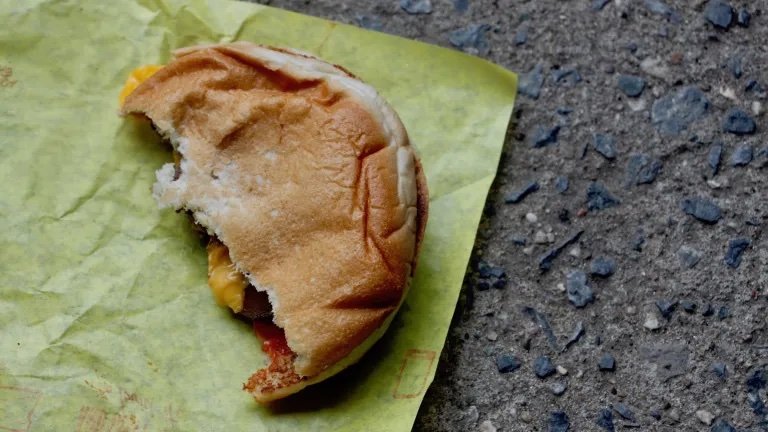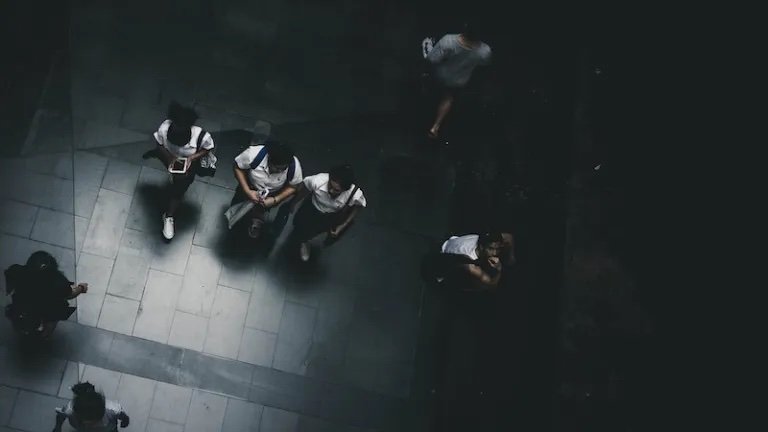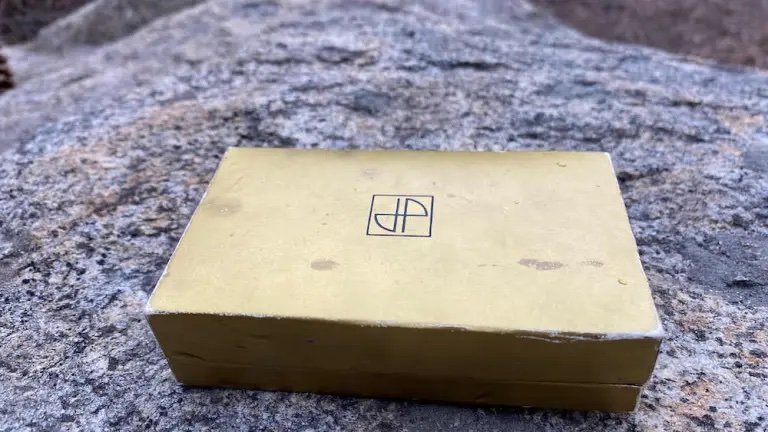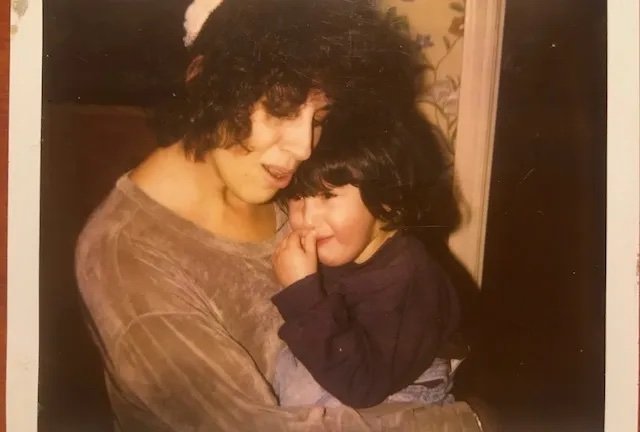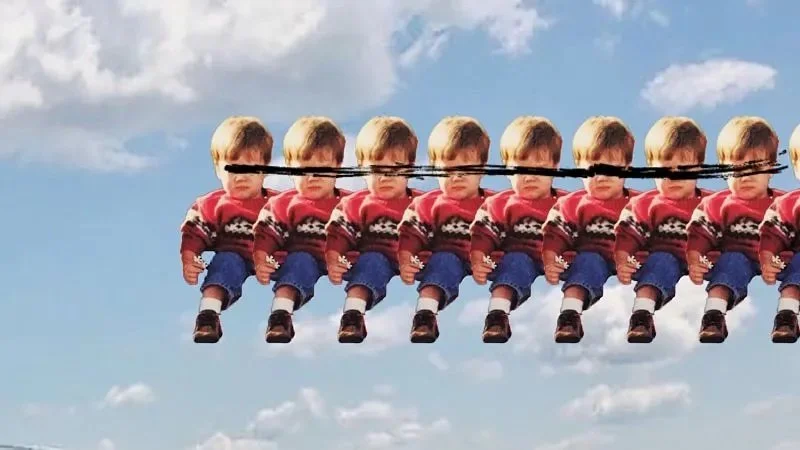Notes on Chance and Partial Demises, Beginning with Elvis’s Death
In the Iron Mountain maternity ward, eight hundred miles north of Graceland, a nurse repeated what the radio said: “Elvis is dead.” B was born, black strands slicked to his head.
The First Time I Tried McDonald’s
I was dead, or, at the very least, considered dead in the eyes of my country. When the Soviet Union fell apart, Saint Petersburg came down along with it. My mother drank most days until she could no longer see, and in the wake of her biting neglect, I was left a wounded animal. When I was eight years old, a stranger came to the apartment and told me I was going to be an orphan for the rest of my life. As we drove away from my mother’s apartment, I quietly watched the back of the stranger’s head with bewildered eyes.
Notes from Underground
She approaches me at a party. Tells me he handcuffed her to his dining table and left her there for ten hours. Said he’d thought she had the key. His mistake for forgetting to remove it from his breast pocket. Her eyes are the kind of green that makes you sorry to be looking for so long, matte and immovable. Not like mine. Gray and protean. There’s a distantness about her, surprising dispassion for someone as young as she is. She looks tired. She doesn’t cry or even flinch as she recounts this to me, as though explaining the plot of a movie she watched almost too long ago to recall the actor’s name. She takes a sip of her beer, offers me one. There’s a cooler on the stairs, she says. Just throw a few bucks in the cupholder. I thank her, but do not move right away. I stay in her placid stare, wanting something to happen, wanting for us to embrace one another, or break down. Isn’t that what we deserve? United by the same violent touch. But we aren’t sisters, nor are we friends, and in many ways our relation was for the longest time exclusively adversarial. Well, see you, I say. Yeah, she says. See you.
Next Time Won’t You Sing With Me
Abecedarian
Sure, why not? If I’m going to tell it, and I’m not at all sure that I am, why not wrap it in structure, cover it with metaphor, poetry, asides? Better to bury it deep behind the chest wall, the pectorals, the silicone implants that stand in for ducts and fat and lobules, the scarred-up skin. Tell it muffled, tell it crooked, whisper it into a thousand layers of hospital green cotton, bubble it up through a vat of Adriamycin®. Or not. Maybe best not to tell it at all.
Here You Go
Just so you’ll know: this doesn’t end with me doing the right thing. Why else would it stick with me for forty years? Who has the time, space, or inclination to remember one’s moral successes? Don’t, however, go into this expecting a thrilling tale. Complicit inaction is rarely thrilling, especially when there’s not a great deal at stake in the first place, as was the case here. But the same could be said for life in general—rarely thrilling, rarely much at stake. There are occasional moments, however, when we sense the ethical gravity of things a bit more than usual, moments when we feel our responsibilities to others a bit more keenly, even when the decisions we end up making don’t affect all that much. Perhaps we feel these things most when we know we’re doing our best to deny the choices available to us. The denying is what has stuck with me.
Tour Guide
After being incarcerated for nearly a decade, I have finally made it to a minimum-security facility. In the federal system, these facilities are referred to as camps, typically companion facilities to a United States Penitentiary. This dual-facility complex, U.S.P Lee and Camp Lee, is located in Virginia, wedged between southeast Kentucky and northeast Tennessee. The heart of Appalachia.
Joy
The perfume is called Joy, but the black box looked sinister to me as a kid, funereal; it looked like it should hold ashes, cigarettes, a lifeless heart. The perfume didn’t smell joyful to me, either—it smelled like sugar laced with poison. I couldn’t understand why my mother loved it so, why my father bought it for her so religiously—tiny bottles in a cushioned box, a larger bottle for extra special occasions. I was told it was expensive, rare, told it was the most generous gift, but it bothered me, felt like something between my parents I couldn’t access, some terrifying adult brand of joy.
Eggbert
It isn’t so much that my brother lives on the freer side of a prison wall, or that when I’m released—sometime after 2024—I will have spent more years inside than I have lived in the outside world. What’s useful for you to know is that I will bring home with me an overflowing collection of memories, both terrific and terrible, of the people I met in this razor-wired land of misfit toys and wayward boys. It’s the memory of these people that will drag me home alive.
Good Night, and Good Cluck
On a gloomy spring evening, only one chicken returned home on schedule. No need to count heads. At this point, we had just three left, the others picked off one at a time like an Agatha Christie novel. I kept calling out in my usual way.
A Glimpse of Abundance
The roadside marquee caught my eye in the summer of 1979. With its black silhouette of tiny legs kicked up, it promised a break from responsibilities engulfing me. At 26, I’d recently ended a marriage launched just days after passing my driver’s license test at 16. Although by now I was a mother of two young sons, the boys had recently decided to live with their father for a while. Suddenly, a newfound sense of possibilities shimmered around the edges of my swamp of anger at an unfaithful husband yoked to a pervasive sorrow over an end to my happily-ever-after dream.
Checkmate
I knew that my fatherless happiness wouldn’t last, but I never understood why my mother chose Igor Borisovich over her other suitors. Anyone—anyone at all would have been better. Gena had his own car, Oleg wrote poetry and Misha brought me a doll in a blue satin dress from East Germany. But aside from providing little joys to brighten our 1980s Soviet existence, all those men seemed much kinder than my new stepfather.
Labyrinths
My mother speaks for me. I nod along as she recounts the twisted history of my illness, too weak to correct her when she trips over a detail. “I’m a doctor,” she declares, and physicians pay heed. They answer her litany of questions, tolerate the shrill panic in her voice. My mother is a medical professional, and this is my golden ticket—the only thing that will save me. I’m one of the lucky ones. Some people wait years, decades, hundreds of thousands of dollars before they arrive at a diagnosis of Lyme Disease. Mine came easy: a week after the pink rashes that colonized my skin, a variant of the classic bull’s eye. Treatment was supposed to last four weeks.
Hidden Inheritance
Dad, in his white undershirt and gym shorts, asked to speak with me one night. I didn’t think much of this; he often wished me goodnight with an “I love you” and a “sweet dreams” sprinkled in for good measure. But when he entered the bedroom and closed the door behind him, my heart dropped—he never closed the door. I knew what this was about.
“My Heart Will Always Be With You”
Say it was a night, any night in the early ‘60s, and I was falling asleep in our brick rambler on Layton Drive in the sleepy DC suburbs. Corner lot, the two-trunked tree. A basement that, like every basement here, flooded after a hard rain. The collective moan meant everyone on Layton Drive was in the same boat, headed downstairs with our pails. Still, we, the Parks, were different from our neighbors; the only family that ate kimchi, for one thing. Kimchi with tuna boats, kimchi with spaghetti ‘n’ meatballs. I even liked it old and soggy but soon enough my mom would be fitting herself with those yellow Playtex gloves over an impressive mound of chopped cabbage and sliced red radishes topped with cayenne pepper. Translation: new kimchi! Fresh and crunchy, just the way I loved it.
Ruminations on David Foster Wallace’s letters to Richard Elman
Richard died New Year’s Eve 1997 at age 63. From this widow’s point of view, one confounding thing about death is its persistence through time. Day in, day out, year after year, the dead remain dead, even if they return momentarily in dreams or conversation or correspondence. You’re still dead? I find myself asking Richard, even though I’ve been happily remarried for 15 of the 22 years since he died. (Once, I dreamt that Richard returned. I am happy to see you, I said. But I am married. To someone else. That’s all right, he said, slipping into bed next to me and my husband).
Race and Appeasement
I was laying on my couch, fishing pot stickers out of a Chinese to-go box, and watching a movie on my ex’s Disney+ account when my phone started chirping to life, and the record should note that I was done with the day.
CTRL + RETURN
The moment you hit send you know you’re fucked. Still, there’s a chance that if you move fast enough you can rip the cable from the back of your computer and prevent the email from blasting out to the group distribution list. Processing that thought takes less than one second and is accompanied by what feels like a full quart of adrenaline hitting your bloodstream with the force of a speedball. And so down you go, oblivious to the perilous state of your heart, which is already jackhammering an exit from your chest, into a briar patch of dust bunnies and dog-eared copies of The Economist and paper bag sarcophagi of rancid half-eaten lunches. Another second. You find the wire and yank so hard that your elbow smacks the underside of your desk and launches a Starbucks cup filled with two days of tobacco spit onto the carpet next to Alvarez’s foot. He recoils and fires off automatic rounds of trilled and profane vernacular but you barely hear it because you’re back on your feet in a modified three-point stance, your chair capsized next to you, your hand on the desk for support, your face six inches from the screen, searching for the parenthetical that will save your life: Outbox (1).
My Brother’s Peace Keeper
The other day, I texted my stepbrother for the first time in months—our relationship was one of the many that has been irreparably altered by the current political climate.

